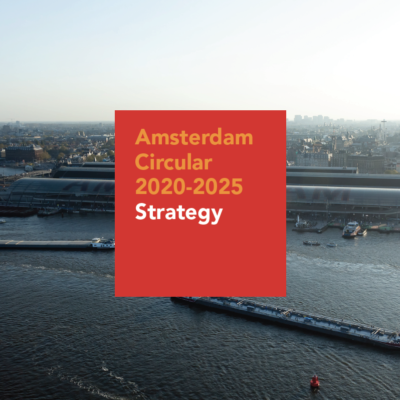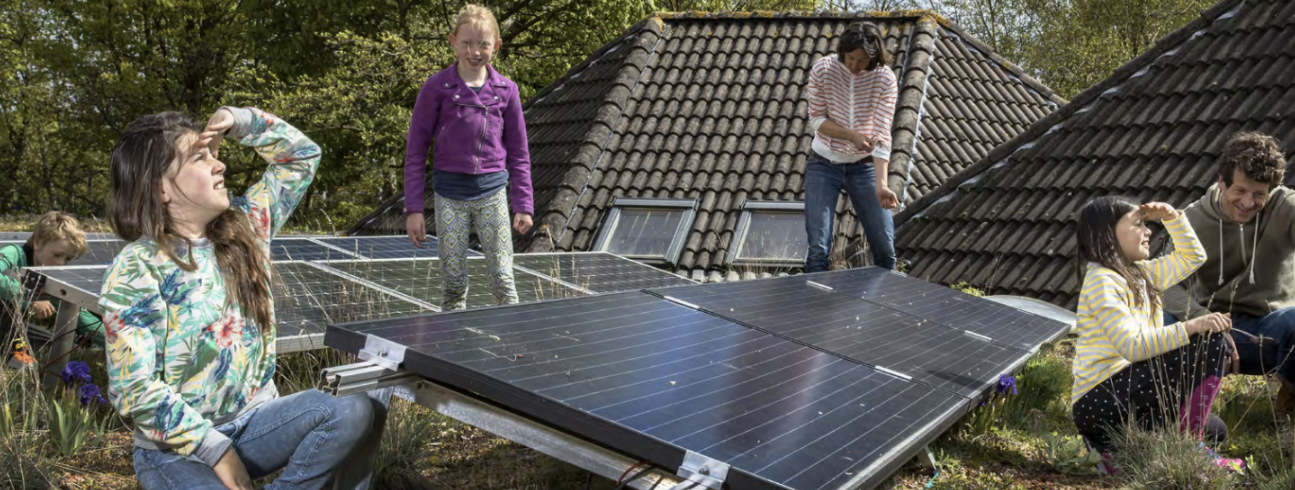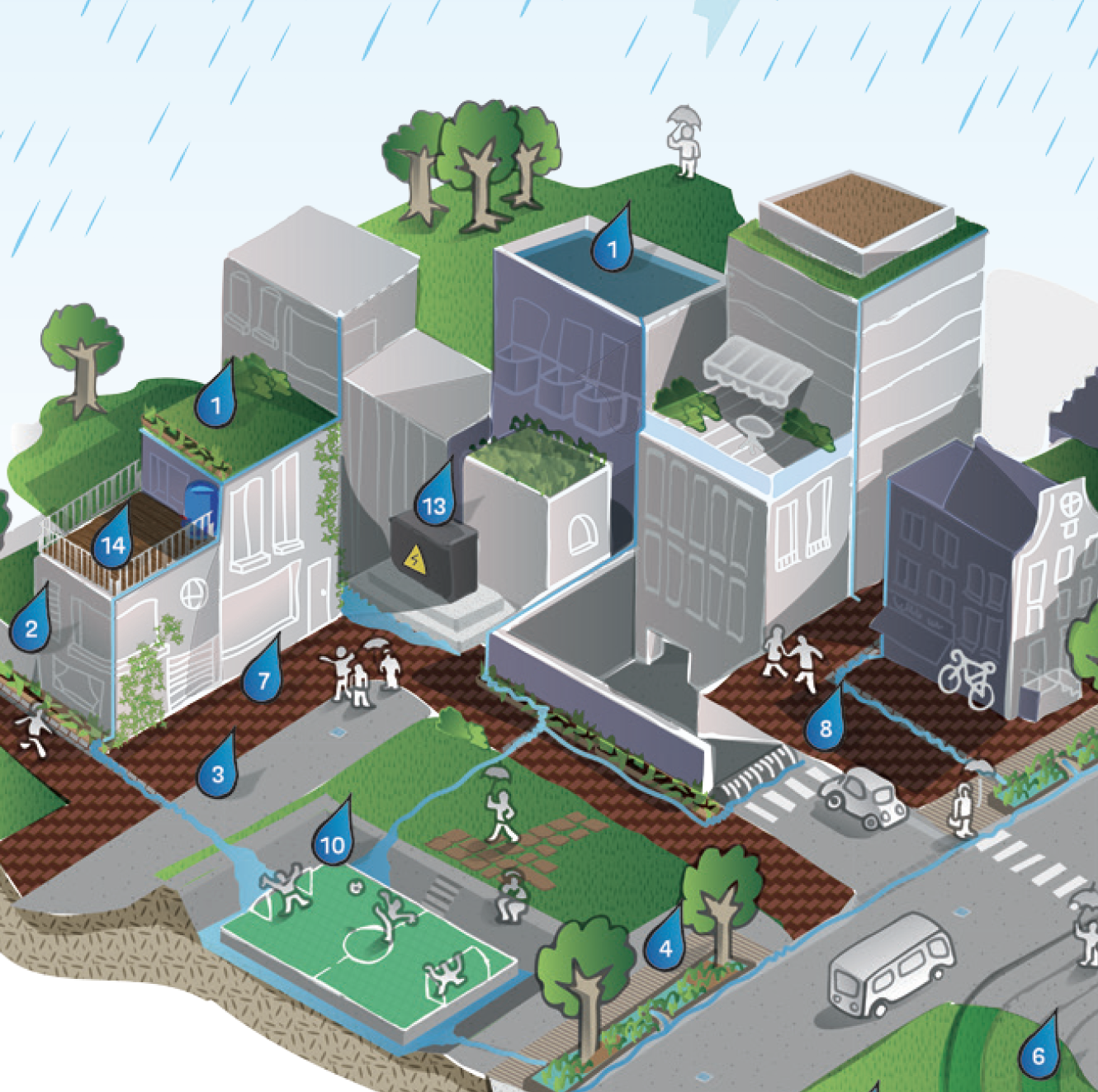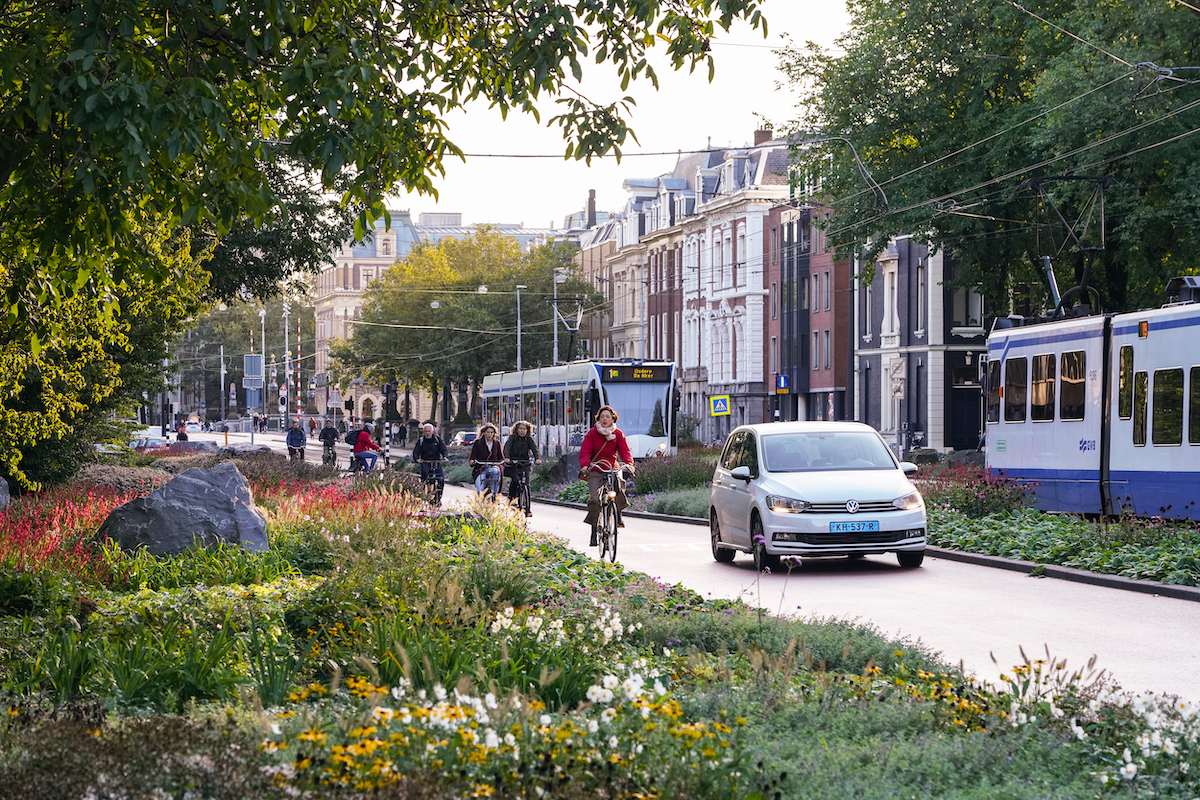
Circular Economy: 2020-2025 Strategy

2023 Climate Report (download)
Natural Gas-Free Amsterdam
Climate Adaptation: Smart Blue Green Roofs


Amsterdam is taking action now to ensure the city remains a healthy and inclusive one for everyone into and beyond 2050. The city’s Climate Neutral Programme focuses on reducing CO2 released within the city of Amsterdam as a result of energy use. If Amsterdam is to become a carbon-neutral city, an energy transition is needed: a structural transformation of the energy system away from fossil fuels such as oil, natural gas and coal. It will also be important to use available energy sources as sparingly as possible. Amsterdam’s emissions reduction ambitions includes making local traffic emission-free by 2030, and for the city to be natural gas-free by 2040, among other things. The city wants the energy transition to be a just transition, with the costs and benefits distributed fairly and for everyone to have equal access to the decision-making process. It’s working closely with leaders and citizens in the energy transition, removing obstacles, and inspiring and encouraging others to take action and build networks.
Amsterdam’s Climate Neutral Roadmap outlines how targets will be achieved and what their expected spatial impacts will be. The plan is based on the following transition pathways: the built environment, electricity, mobility, industry & harbour, and the municipality. There is also a climate budget, which sets out who in the municipal administration is responsible for what forms of CO2 reduction and how this will be implemented. Grants, loans and free advice are being offered to help accelerate the energy transition and phase-out the use of natural gas in homes. A climate fund has been established for large-scale projects.


